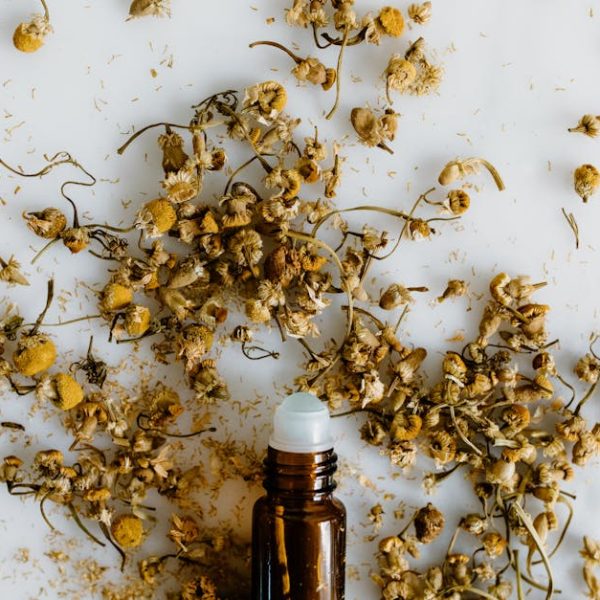Essential oils are derived from plants, retaining the natural scents and flavors, or essence, of their sources. Besides their delightful aroma, they bear significant healing properties. To understand their impact on sore throat relief, let’s delve into the scientific attributes of these plant-derived powerhouses. Essential oils comprise a complex mixture of volatile components, producing therapeutic properties including anti-inflammatory and antibacterial effects, which are highly beneficial for alleviating sore throat symptoms. Principal among these are eucalyptol, thymol, and menthol.
Pro Tip: Although essential oils are natural, due to their highly concentrated form, they must be diluted in a carrier oil before application to avoid potential skin irritation or adverse reactions. Always remember to conduct a patch test for sensitivity before use.
Oils for Immediate Relief: Eucalyptus, Peppermint, and Thyme
Beyond their invigorating scents, the essential oils of eucalyptus, peppermint and thyme are renowned for their pain-relieving and soothing properties. Eucalyptus exemplifies this with eucalyptol, a primary component that works as an effective analgesic and anti-inflammatory agent. Peppermint oil, rich in menthol, aids in cooling the throat and easing swallowing. Thyme oil, on the other hand, packs a punch with thymol; an antiseptic component that can control infection and reduce inflammation.
| Eucalyptus | Peppermint | Thyme | |
|---|---|---|---|
| Pros | Anti-inflammatory, analgesic | Cooling effect, eases swallowing | Antiseptic, reduces inflammation |
| Cons | May cause irritation if undiluted | Not suitable for young children | Must be avoided by people with high blood pressure |
For quick relief, consider these simple recipes:
Gargle: Eucalyptus Throat Soother
Combine 2-3 drops of eucalyptus oil with 1 cup of warm water. Stir well and use as a gargle. Do not swallow.
Inhaler: Peppermint Breath Fresh & Throat Relaxant
Add 5-6 drops of peppermint oil to a bowl of steaming water. Cover your head with a towel and inhale deeply for several minutes.
Spray: Thyme Throat Spray
Dissolve a pinch of salt in 50ml of warm water, add 2 drops of thyme oil, and transfer to a spray bottle. Shake well, then spray into the throat whenever relief is needed.
Oils for Throat Inflammation and Pain: Lavender, Ginger, and Chamomile
For those experiencing the nastier side-effects of a sore throat, like inflammation and severe pain, lavender, ginger, and chamomile oils present a triple threat of relief. A powerhouse in the world of essential oils, lavender oil contains compounds like linalool and linalyl acetate which exhibit significant anti-inflammatory effects. Ginger oil, known for its warming qualities, can soothe and reduce throat inflammation. On the other hand, chamomile oil, with its exceptional antispasmodic properties, can relieve painful throat muscle spasms.
Here are the key compounds in these oils:
- Lavender: Linalool, Linalyl Acetate
- Ginger: Zingiberene, Beta-Sesquiphellandrene
- Chamomile: Bisabolol, Matricin
Best Practices: When using these powerhouse oils:
- Always dilute in a suitable carrier oil.
- Perform a patch test to check for skin sensitivities.
- Use in moderation and refrain from ingestion unless specifically instructed by a health professional.
Here are few simple recipes with these potent oils:
Compress: Lavender Soothing Throat Wrap
Combine 2-3 drops of lavender oil with 1 cup of warm water. Soak a clean cloth in the water, wring out excess liquid and place it over your throat for relief.
Gargle: Ginger Throat Comfort
Dilute 2-3 drops of ginger oil in half a cup of warm water. Gargle for a minute and spit out. Do not swallow.
Spray: Chamomile Throat Calmer
Mix 4-5 drops of chamomile oil with 50ml of water in a spray bottle. Spray into the throat when irritation or pain occurs.
Oils for Boosting Immunity: Lemon, Tea Tree, and Rosemary
Fighting a sore throat sometimes requires reinforcing your immune system, and lemon, tea tree, and rosemary oils serve just that purpose. Lemon oil is known for its rich Vitamin C content, which can boost the body’s natural defense mechanisms. Tea tree oil is a highly regarded antiviral and antibacterial oil that can fight infections causing the sore throat. Lastly, rosemary oil, with its energizing scent, is known to stimulate not only the mind but also the immune system.
Here’s a quick checklist for using these immune-boosting oils:
- Verify the oil is 100% pure, without any additives.
- Always explore the oil’s properties and precautions, some oils might not be suitable for children or during pregnancy.
- Do a patch test to ensure skin compatibility.
- Consult with a certified aromatherapist or a health professional when in doubt.
Here are some recipes to strength your immunity:
Diffuser: Lemon Delight
Add 5-6 drops of lemon oil to your diffuser. Run the diffuser in your living area for an immune-boosting aromatherapy session.
Rub: Tea Tree Chest and Neck Rub
Combine 3-4 drops of tea tree oil with 1 tablespoon of carrier oil. Apply the mixture on your chest and throat area.
Inhaler: Rosemary Refresh
Add 5-6 drops of rosemary essential oil into a bowl of hot water. Lean over, cover your head with a towel and inhale deeply.
Other Beneficial Oils for Sore Throat Relief: Clove, Juniper Berry, and Oregano
These effective but lesser-known essential oils provide relief from sore throat symptoms. Clove oil, loaded with anti-bacterial and anti-inflammatory properties, can ease throat pain and reduce swelling. Juniper Berry oil is potentially beneficial in detoxifying the throat area, thanks to its strong antiseptic attributes. Oregano oil, although intense, works as a powerful natural antibiotic combating throat infections.
Here’s a look at pros and cons of using these unique oils:






